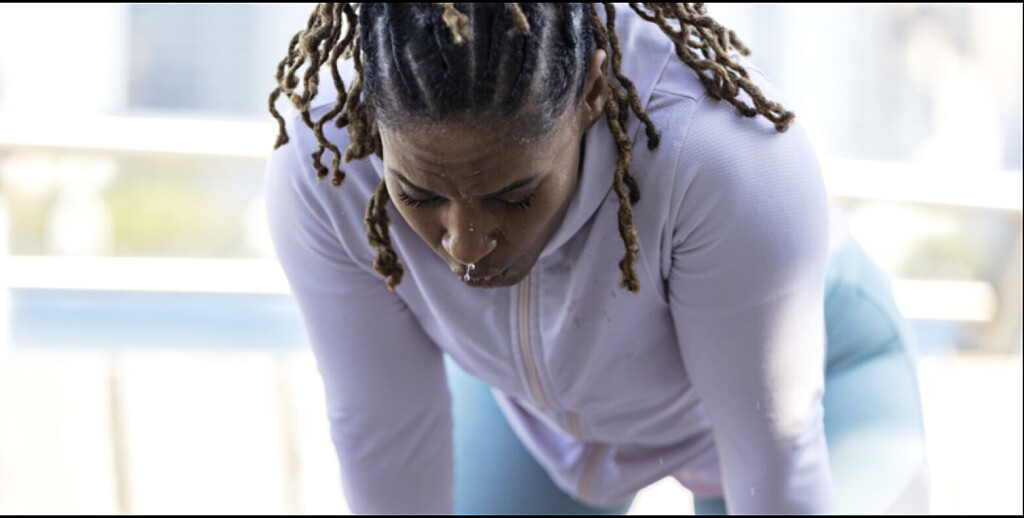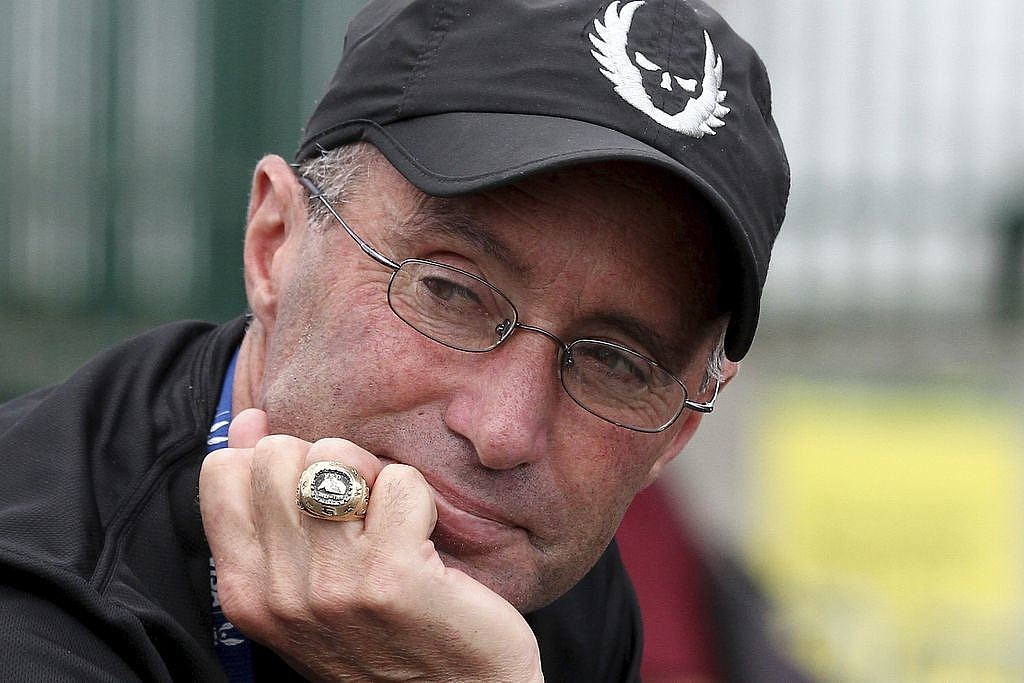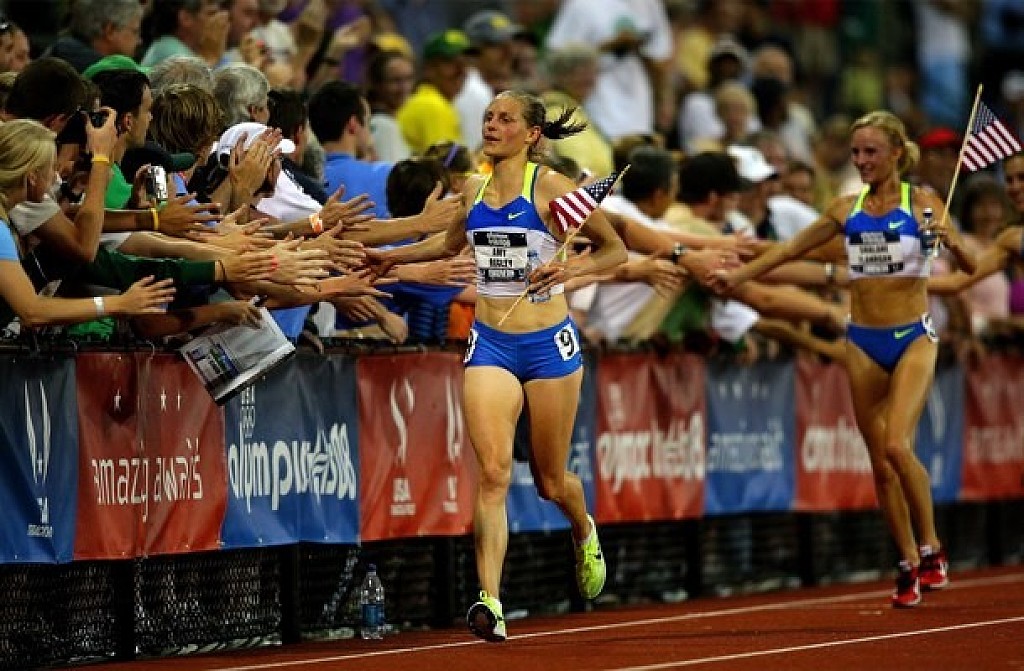Running News Daily
Running News Daily is edited by Bob Anderson. Send your news items to bob@mybestruns.com Advertising opportunities available. Train the Kenyan Way at KATA Kenya and Portugal owned and operated by Bob Anderson. Be sure to catch our movie A Long Run the movie KATA Running Camps and KATA Potato Farms - 31 now open in Kenya! https://kata.ke/
Index to Daily Posts · Sign Up For Updates · Run The World Feed
Articles tagged #Amy Yoder Begley
Today's Running News
You Might Be Slower Soon After Getting a COVID Booster
New research finds a temporary decrease in a key aspect of fitness.
Everyone has that friend who got their COVID-19 vaccine and bounced back the next day, with little more than a sore arm. We’ve also heard (or told) stories of being in bed for multiple days after the first, second, third, and fourth shot.
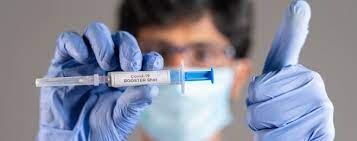
While no one enjoys feeling unwell, runners have an added concern: How will a shot affect my upcoming training and racing?
A recent study offers some quantification to anecdotal evidence runners have been sharing for the past year and a half, where the new research found a small decline in aerobic capacity post-booster. Here’s how to incorporate that finding into your training plans.
Why Runners Care About VO2 Max
VO2max is often treated as the gold standard measurement of cardiovascular fitness. It represents the maximum amount of oxygen your body can use during exercise. This matters for runners because, all else equal, the more oxygen you can use, the harder you can work.
Given the significance of VO2 max to athletes, researchers in Belgium set out to test whether the COVID-19 booster affected it. They recruited 42 recreational endurance athletes (runners, cyclists, and swimmers) who were scheduled to receive their COVID booster—i.e., the third shot in the two-series Pfizer vaccine. Just before they got their shot, the athletes took a VO2 max test. This involved riding a stationary bike while wearing a device that measured oxygen consumption. As resistance on the bike went up, their oxygen consumption also went up until it eventually plateaued—indicating VO2max.
One week after receiving their booster, the athletes repeated the test. Compared to their performance pre-booster, their VO2max showed, on average, a 2.7 percent decrease.
Given that a decline in VO2 max reflects a decline in cardiovascular fitness, this finding is worth factoring into your training and racing plans. However, it’s worth noting that a 2.7 percent decrease in VO2 max does not necessarily mean a 2.7 percent decrease in speed. Here’s an example using Jack Daniels’s VDOT values (which are a proxy for VO2 max).
Let’s say a runner with a VDOT of 38 gets her COVID booster. This lowers her VO2 max (VDOT) by 2.7 percent, giving her a reduced VDOT value of 36.97. According to Daniels’s calculations, all else being equal, her previous 5K time of 25:12 would slow to about 25:45, or by 33 seconds—which is only 2.2 percent slower. If she’s fitter and has a half marathon time of 1:44:20 and a VDOT of 43? One week after the booster, her VDOT would be just below 42, and her half marathon time would increase from 1:44:20 to around 1:46:30, or by 2.1 percent.
VO2 Max Isn’t Everything
Admittedly, these calculations assume “all else being equal,” which is virtually impossible. Many other factors contribute to running performance, including running economy (how much oxygen you need to run a given pace), stride mechanics, and even perceived effort. Hielko Miljoen, a sports cardiologist at University of Antwerp and lead author on the paper, pointed out that in that respect, this study is only the beginning of an answer to how the booster affects performance.
“The next step in this investigation should be to do an endurance test, because VO2max is just one part of exercise capacity and athlete performance,” he says.
Additionally, the researchers only tested VO2 max one week out from the booster shot. While it’s unknown what effects may exist further out from the shot—the researchers did not retest the athletes at later intervals—it seems unlikely that the decline is permanent. “This study is by no means an answer,” says Miljoen. “It is trying to reassure people that the effects are not huge, probably not lasting.”
Weigh the Risks
Every medical decision is a personal one, and the reality is that getting the COVID-19 vaccine, including the booster, doesn’t come with a non-zero amount of risk.
“The entire field of medicine comes with statistics,” says Miljoen. “The benefit and harm of a certain medical procedure or intervention are only known on a population basis, so individuals must make up their own mind based on the data out there.”
While life-threatening risks of the vaccine are low, getting it or the booster may interrupt your training for a few days. A recent study of more than 1,000 elite Polish athletes found that the athletes lost an average of two and a half training days around getting the COVID vaccine. However, the same study found that athletes lost an average of eight training days due to COVID-19 infection. Given these and other research data, the authors concluded in favor of vaccination for athletes, writing that “the benefit–loss ratio strongly favors vaccination.”
Time Your Shot Strategically
While it doesn’t feel great to miss any amount of training, one advantage of vaccination and booster shots is that they can be timed to have minimal impact on a racing season—whereas COVID infection can’t.
Ben Rosario, executive director of Hoka NAZ Elite, recalls two of his athletes contracting what he believes was COVID in January 2020.
“I think it really affected them in the 2020 Olympic Trials marathon, because it was a real detriment to their training at that time,” he says. “They missed a really important 10 or so days of training.”
With the initial vaccines, he observed that athletes would feel unwell for seven to 10 days; consequently, they tried not to schedule their vaccination in the week or two leading up to a race. The results of the Belgian study suggest that similar scheduling may be warranted for the booster. While you may only feel the effects of the booster for a day or two, its less discernable effects—like suppressed VO2 max—can still affect your race if you schedule it too close to the shot.
Go Light Around Your Booster
Amy Yoder Begley, coach of the Atlanta Track Club, says that what her team found worked best was to ease off training for the few days surrounding their booster. Typically, the athletes would do a light day of training on the day of the booster and then go home, hydrate, and focus on moving their arm throughout the rest of the day. They’d take the next day off to let their body recover and then, depending how they felt, they’d slowly ease back into training.
“I just kept telling people: literally you’re talking two to five days to let the body do its thing to give you more protection down the road, if possible,” says Begley.
Rosario has a similar message: “My advice to all runners would be to be patient. What’s the harm in missing some training if you’re going to come back super healthy?”
by Runner’s World
Login to leave a comment
Alberto Salazar gets lifetime ban for sexual, emotional misconduct
Alberto Salazar, the 1982 Boston Marathon champion from Wayland and once a prominent Nike coach of some of the world’s top distance runners, was permanently barred from participating in track and field Monday by the US Center for SafeSport, which cited Salazar for sexual and emotional misconduct.
Salazar, 62, has 10 business days to request an appeal through arbitration of the ruling made by SafeSport, a nonprofit founded in 2017 to protect athletes from sexual, physical and emotional abuse.
The decision Monday was the latest stage of a humiliating fall for Salazar, who was suspended for four years in September 2019 by the United States Anti-Doping Agency for violating rules governing banned substances. He is appealing that suspension to the Court of Arbitration for Sport, the Swiss-based equivalent of a Supreme Court for international sports.
The SafeSport charges were not detailed Monday. In January 2020, the organization temporarily barred Salazar from participating in track and field after elite female runners who formerly trained under him, including Mary Cain, Amy Yoder Begley and Kara Goucher, described what they said were years of psychological and verbal abuse by the coach.
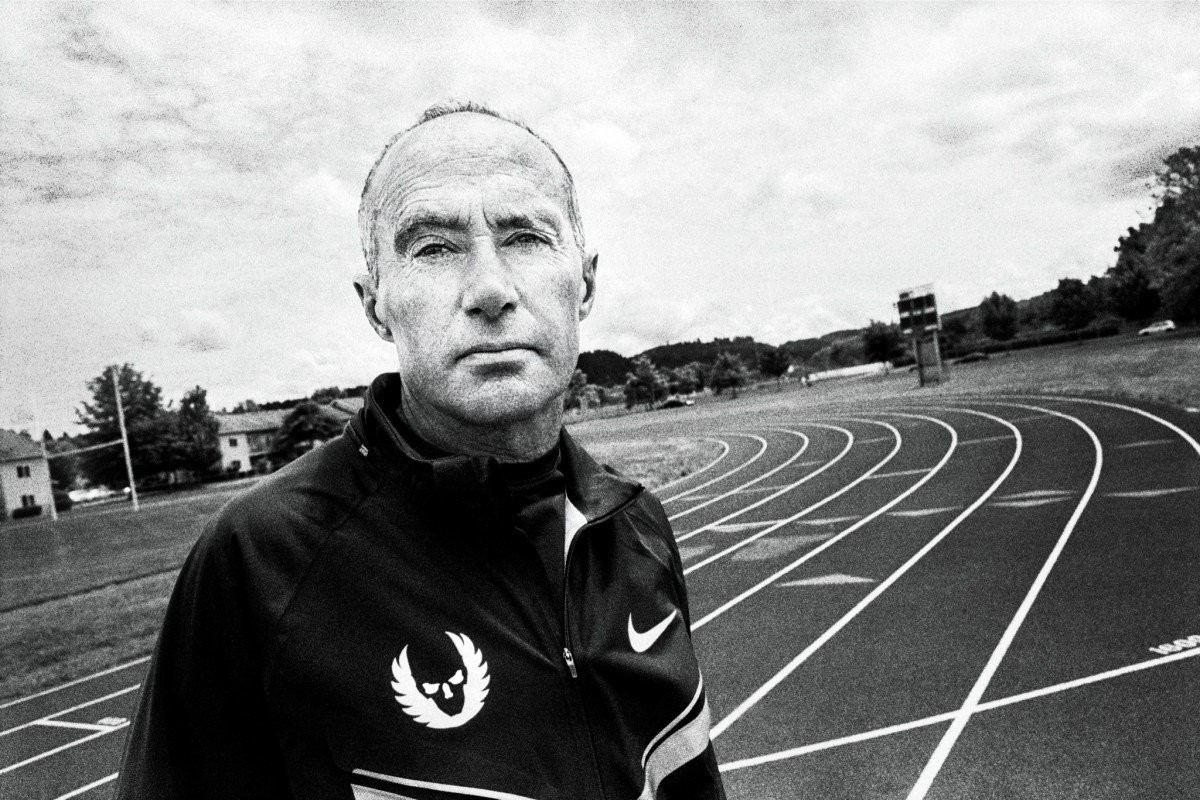
Neither Salazar nor his lawyer immediately responded to requests for comment Monday. Salazar has previously denied all accusations of misconduct.
In a 2019 video produced by the Opinion department of The New York Times, Cain, a former high school phenom from New York who is now 25, accused Salazar of shaming her in front of others on the Nike Oregon Project team — which has since been disbanded — when she did not reach weight targets. She said that her low weight caused her to miss her period for three years, leading to lower levels of estrogen and five broken bones.
Cain also said that she had suicidal thoughts and had cut herself, but that no one at Nike “really did anything or said anything.”
Yoder Begley, a 2008 Olympian, tweeted in 2019 that she was removed from the Oregon Project after a disappointing showing in the 10,000 meters at the 2011 United States track and field championships.
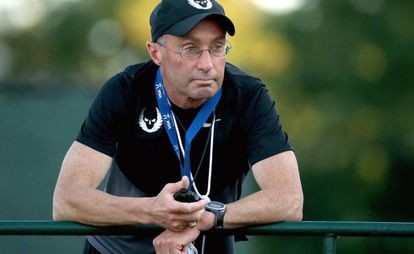
“I was told I was too fat and ‘had the biggest butt on the starting line,’ " Yoder Begley wrote.
Goucher, another American Olympian who once trained with the Nike Oregon Project, told The Times that after being cooked meager meals by an assistant coach, she often ate more in the privacy of her room, nervous that she would be heard opening the wrappers of energy bars she furtively consumed.
Salazar replied to Cain’s 2019 video in a statement to The Oregonian newspaper: “Neither of her parents nor Mary raised any of the issues that she now suggests occurred while I was coaching her. To be clear, I never encouraged her, or worse yet, shamed her, to maintain an unhealthy weight.”
Cain acknowledged at the time that she had sought to train again with Salazar, seeking an apology, closure and his approval. But she described their relationship as poisonous, saying, “I was the victim of an abusive system, an abusive man.”
Salazar told Sports Illustrated in 2019 that his “foremost goal” was to promote athletic performance in line with the good health and well-being of his athletes, but he acknowledged, “On occasion, I may have made comments that were callous or insensitive.”
by Jere Longman
Login to leave a comment
Another Nike Runner, Amy Yoder Begley says Coach Criticized Her Body
Less than a week after runners Mary Cain and Kara Goucher accused their former Nike Oregon Project coach, Alberto Salazar, of mental and physical abuse, another woman has come out with her own allegations.
Amy Yoder Begley was an Indiana state-champion runner before joining the Nike team in 2007. Within months, she was targeted by Salazar for her weight, as Cain was. According to the New York Times, Salazar demanded she be leaner, tried to control her relationships with her teammates, and complained about her laugh being annoying.
Yoder Begley says Salazar frequently flip-flopped in his criticism of her. “If I had a bad workout on a Tuesday, he would tell me I looked flabby and send me to get weighed,” she said. “Then, three days later, I would have a great workout, and he would say how lean I looked and tell me my husband was a lucky guy. I mean, really? My body changed in three days?”
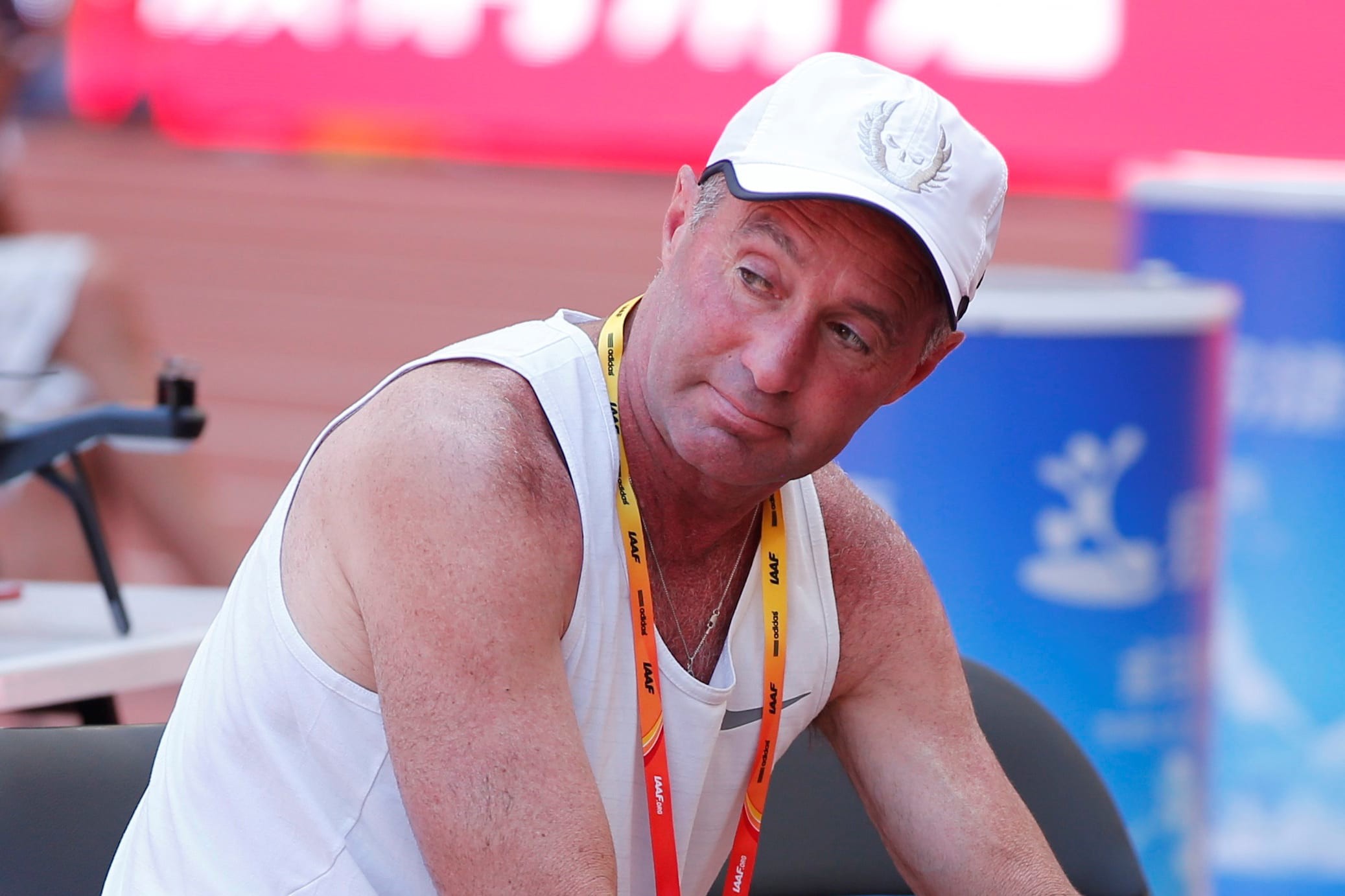
Salazar accused Yoder Begley of not following her nutrition plan and made other comments about her body. “He was obsessed with her butt,” Goucher told the Times. “He would always talk about how it was hanging out of her shorts.”
The allegations were also confirmed by Steve Magness, Salazar’s assistant coach from 2011 to 2012. “I remember Salazar saying something like, ‘Her ass was hanging out of her uniform,’” he recalled to Sports Illustrated. “In that moment, he added, ‘I’m done with you. I’m tired of fighting this weight issue. We’re done.’ Amy countered by saying she hadn’t gained any weight. Alberto said he didn’t care what her weight said. ‘I know you’ve gotten bigger.’ There was this conversation on if her jean sizes had gone up because her butt was bigger. It was the most bizarre thing ever.”
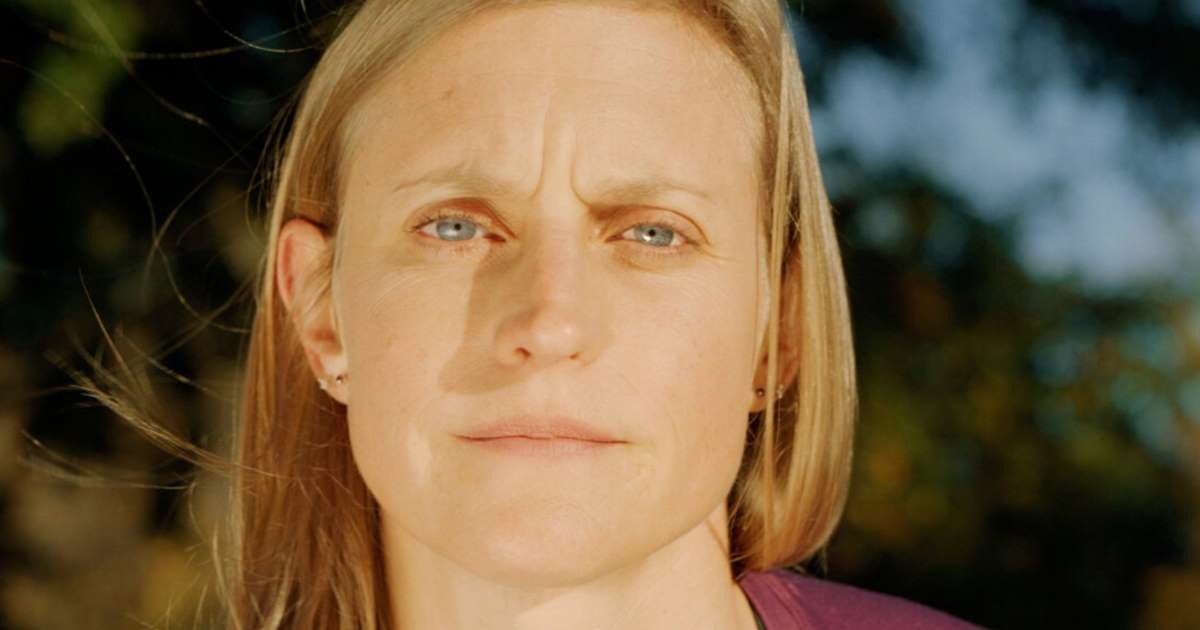
Cain made similar allegations against Salazar, saying he had pressured her to maintain an extremely low weight, which caused her to break several bones, stop getting her period, and develop disordered eating that led to suicidal thoughts. Salazar addressed the allegations in a statement to Sports Illustrated:
My foremost goal as a coach was to promote athletic performance in a manner that supported the good health and well-being of all my athletes. On occasion, I may have made comments that were callous or insensitive over the course of years of helping my athletes through hard training. If any athlete was hurt by any comments that I have made, such an effect was entirely unintended, and I am sorry. I do dispute, however, the notion that any athlete suffered any abuse or gender discrimination while running for the Oregon Project.
Meanwhile, Nike has said an investigation into the accusations is underway.
by Marie Lodi
Login to leave a comment


